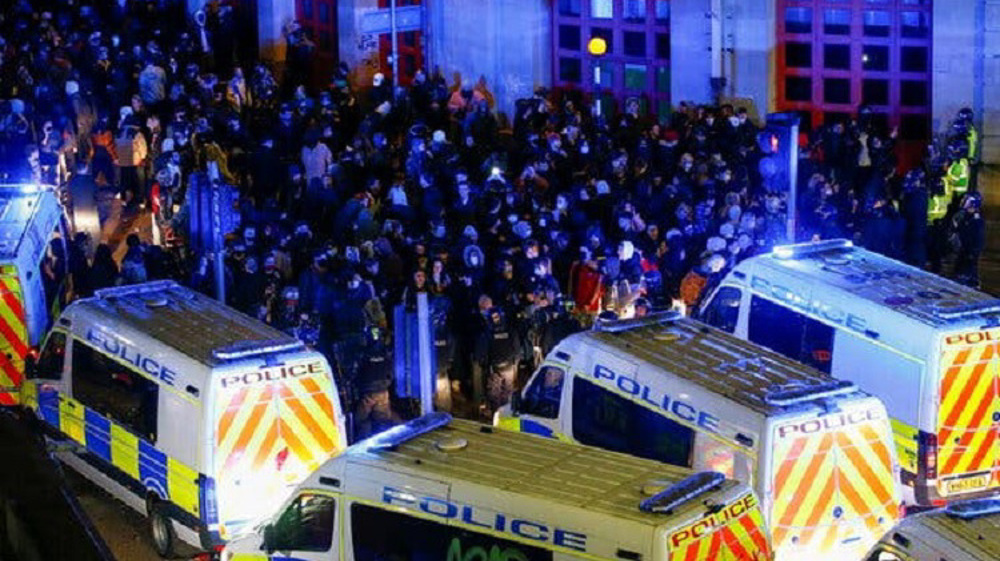British establishment taken aback by scale and spirit of Bristol protest
The shockwaves from the unprecedented protest in Bristol yesterday (March 22) continue to reverberate as both local and national leaders indulge in blistering attacks on people who came out to vent their anger at sweeping new police and judicial powers.
By all credible accounts, the Avon and Somerset Police used disproportionate force to disperse protesters who had turned out for the Kill the Bill march on Sunday.
The authorities claim 20 police officers were injured in the violent scuffles, two of them seriously.
Owing to the determination and resolve of the protesters the police were only able to arrest seven of them.
The march was organized in protest to the Crime, Sentencing and Courts Bill, which gives the police and the broader criminal justice system sweeping new powers.
The most controversial aspect of the legislation relates to how protests are managed and policed in future, effectively making it much harder – and in some cases impossible - to stage noisy and disruptive protests in London and other major cities.
In a foretaste of things to come, national and local leaders have been united in their condemnation of the protesters.
Prime Minister, Boris Johnson, described the “violent scenes” in Bristol as “unacceptable”.
Bristol Mayor, Marvin Rees, went further by calling the protesters “selfish” for allegedly “living out their revolutionary fantasies”.
For their parts, police chiefs were anxious to paint the protesters as anarchists and extremists hell-bent on confrontation.
Avon and Somerset Police Chief Constable, Andy Marsh, claimed the protest had been "hijacked by extremists" and by "people who were determined to commit criminal damage".
Meanwhile, the chairman of Avon and Somerset Police Federation, Andy Roebuck, called the protesters “animals”, before accusing them of coming close to committing “attempted murder”.
VIDEO | Press TV's news headlines
Israel launches new strikes against Syrian defense facilities
Netanyahu orders Israel negotiators to continue in Doha
Israeli regime strikes buildings in Lebanon’s south
Suicides among Israeli forces surge amid Gaza war
Gen. Soleimani turned threats into opportunities and fortified resistance axis
Houthi: General Soleimani thwarted US conspiracies in West Asia
Islamic Jihad prevents Israeli captive from taking own life










 This makes it easy to access the Press TV website
This makes it easy to access the Press TV website